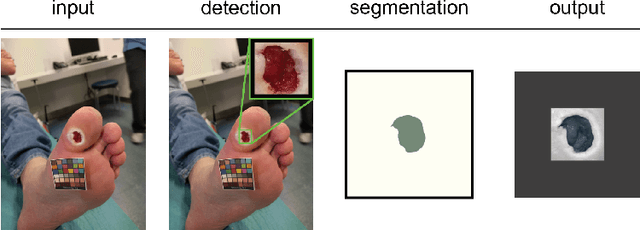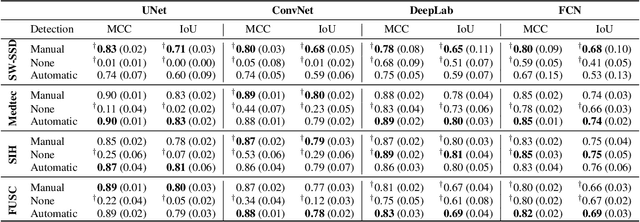Sabrina Catanzaro
Detect-and-Segment: a Deep Learning Approach to Automate Wound Image Segmentation
Nov 02, 2021



Abstract:Chronic wounds significantly impact quality of life. If not properly managed, they can severely deteriorate. Image-based wound analysis could aid in objectively assessing the wound status by quantifying important features that are related to healing. However, the high heterogeneity of the wound types, image background composition, and capturing conditions challenge the robust segmentation of wound images. We present Detect-and-Segment (DS), a deep learning approach to produce wound segmentation maps with high generalization capabilities. In our approach, dedicated deep neural networks detected the wound position, isolated the wound from the uninformative background, and computed the wound segmentation map. We evaluated this approach using one data set with images of diabetic foot ulcers. For further testing, 4 supplemental independent data sets with larger variety of wound types from different body locations were used. The Matthews' correlation coefficient (MCC) improved from 0.29 when computing the segmentation on the full image to 0.85 when combining detection and segmentation in the same approach. When tested on the wound images drawn from the supplemental data sets, the DS approach increased the mean MCC from 0.17 to 0.85. Furthermore, the DS approach enabled the training of segmentation models with up to 90% less training data while maintaining the segmentation performance.
 Add to Chrome
Add to Chrome Add to Firefox
Add to Firefox Add to Edge
Add to Edge